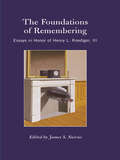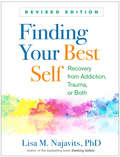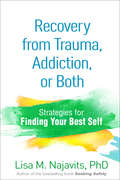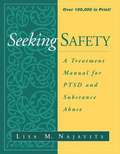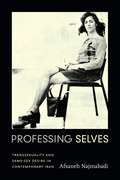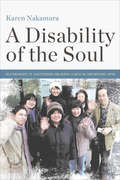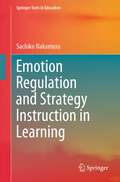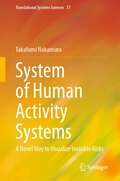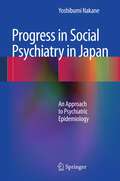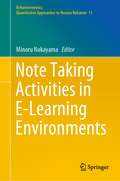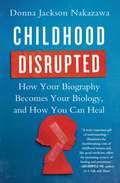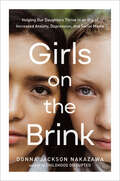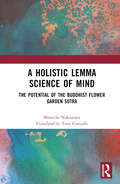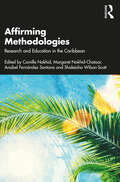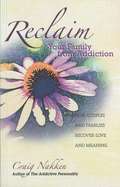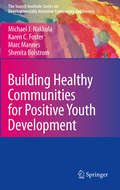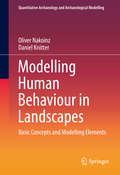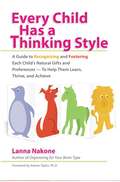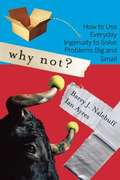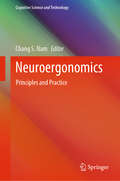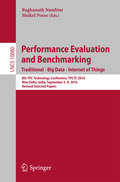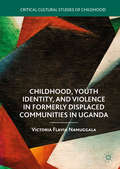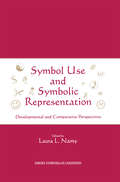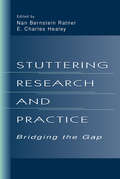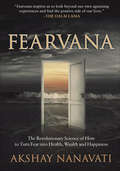- Table View
- List View
The Foundations of Remembering: Essays in Honor of Henry L. Roediger, III (Psychology Press Festschrift Series)
by James S. NairneThe Foundations of Remembering presents a collection of essays written by top memory scholars in honor of Henry L. Roediger III. The chapters were originally delivered as part of the "Roddyfest" conference held in March 2005 to celebrate Purdue University's awarding of an honorary doctor of letters to Roediger in recognition of his many contributions to the field of psychology. Authors were given a simple charge: choose your own topic, but place your work in historical context. Roediger is fascinated by the intellectual lineage of ideas, so addressing historical "foundations" seemed a fitting tribute. The Chapters contained in this volume help to establish the foundations of remembering, circa the first decade of the 21st century, as perceived by some of the leading memory researchers in the world. Not surprisingly, each of the chapters touches on Roediger's research as well, largely because his work has helped to define and clarify many topics of interest to the memory field. The Foundations of Remembering is intended for a wide audience: students, scholars, and anyone interested in exploring the historical and conceptual roots of modern memory theory.
Finding Your Best Self, Revised Edition: Recovery from Addiction, Trauma, or Both
by Lisa M. NajavitsAddiction and trauma are two of the most common and difficult issues that people face. In this motivating book, leading expert Lisa Najavits explains the link between addiction and trauma and presents science-based self-help strategies that you can use no matter where you are in your recovery. Every chapter features inspiring words from people who have "been there," plus carefully designed reflection questions, exercises, and other practical tools. Learn how you can: *Build coping skills so that the future is better than the past. *Keep yourself safe and find support. *Set your own goals and make a plan to achieve them at your own pace. *Choose compassion over self-blame and shame. *Move toward your best self--the person you want to be. If you are a family member or friend seeking to support a loved one--or a helping professional--this book is also for you. Now in a convenient large-size format, the revised edition features added materials for professional and peer counselors. First edition title: Recovery from Trauma, Addiction, or Both. Mental health professionals, see also the author's Seeking Safety: A Treatment Manual for PTSD and Substance Abuse, which presents an evidence-based treatment approach developed specifically for PTSD and substance abuse.
Recovery from Trauma, Addiction, or Both: Strategies for Finding Your Best Self
by Lisa M. NajavitsTrauma and addiction are two of the most common and difficult issues that people face--but it truly is possible to heal. In this motivating book, leading expert Lisa Najavits explains the link between trauma and addiction and presents science-based self-help strategies that you can use no matter where you are in your recovery. Every chapter features inspiring words from people who have "been there," plus carefully designed reflection questions, exercises, and other practical tools. Learn how you can: *Build coping skills so that the future is better than the past. *Keep yourself safe and find support. *Set your own goals and make a plan to achieve them at your own pace. *Choose compassion over self-blame and shame. *Move toward your best self--the person you want to be. Mental health professionals, see also the author's Seeking Safety: A Treatment Manual for PTSD and Substance Abuse, which presents an evidence-based treatment approach developed specifically for PTSD and substance abuse.
Seeking Safety: A Treatment Manual for PTSD and Substance Abuse
by Lisa M. NajavitsThis much-needed manual presents the first empirically studied, integrative treatment approach developed specifically for PTSD and substance abuse. For persons with this prevalent and difficult-to-treat dual diagnosis, the most urgent clinical need is to establish safety-to work toward discontinuing substance use, letting go of dangerous relationships, and gaining control over such extreme symptoms as dissociation and self-harm. The manual is divided into 25 topics, each of which forms the basis for one or more sessions. Covering a range of cognitive, behavioral, and interpersonal issues, topics include highly practical tools and techniques to engage patients in treatment; teach "safe coping skills" that apply to both disorders; and restore ideals that have been lost, including respect, care, protection, and healing. Structured yet flexible, sessions can be conducted in any order and in a range of settings. The volume is designed for maximum ease of use with a large-size format and helpful reproducible handouts and forms.
Professing Selves: Transsexuality and Same-Sex Desire in Contemporary Iran
by Afsaneh NajmabadiSince the mid-1980s, the Islamic Republic of Iran has permitted, and partially subsidized, sex reassignment surgery. In Professing Selves, Afsaneh Najmabadi explores the meaning of transsexuality in contemporary Iran. Combining historical and ethnographic research, she describes how, in the postrevolutionary era, the domains of law, psychology and psychiatry, Islamic jurisprudence, and biomedicine became invested in distinguishing between the acceptable "true" transsexual and other categories of identification, notably the "true" homosexual, an unacceptable category of existence in Iran. Najmabadi argues that this collaboration among medical authorities, specialized clerics, and state officials--which made transsexuality a legally tolerated, if not exactly celebrated, category of being--grew out of Iran's particular experience of Islamicized modernity. Paradoxically, state regulation has produced new spaces for non-normative living in Iran, since determining who is genuinely "trans" depends largely on the stories that people choose to tell, on the selves that they profess.
A Disability of the Soul
by Karen NakamuraBethel House, located in a small fishing village in northern Japan, was founded in 1984 as an intentional community for people with schizophrenia and other psychiatric disorders. Using a unique, community approach to psychosocial recovery, Bethel House focuses as much on social integration as on therapeutic work. As a centerpiece of this approach, Bethel House started its own businesses in order to create employment and socialization opportunities for its residents and to change public attitudes toward the mentally ill, but also quite unintentionally provided a significant boost to the distressed local economy. Through its work programs, communal living, and close relationship between hospital and town, Bethel has been remarkably successful in carefully reintegrating its members into Japanese society. It has become known as a model alternative to long-term institutionalization. In A Disability of the Soul, Karen Nakamura explores how the members of this unique community struggle with their lives, their illnesses, and the meaning of community. Told through engaging historical narrative, insightful ethnographic vignettes, and compelling life stories, her account of Bethel House depicts its achievements and setbacks, its promises and limitations. The book is accompanied by a DVD containing two fascinating documentaries about Bethel made by the author-Bethel: Community and Schizophrenia in Northern Japan and A Japanese Funeral (winner of the Society for Visual Anthropology Short Film Award and the Society for East Asian Anthropology David Plath Media Award). A Disability of the Soul is a sensitive and multidimensional portrait of what it means to live with mental illness in contemporary Japan.
Emotion Regulation and Strategy Instruction in Learning (Springer Texts in Education)
by Sachiko NakamuraThis textbook is written for teachers, practitioners, and researchers, who are interested in developing their knowledge about emotions and learning about ways of helping their learners to cultivate positive and cope with negative emotions. The book covers the topics of emotions, emotion regulation, strategies, and instruction. Each topic is discussed in the subsequent chapters, beginning with a concise summary of theories and research in the fields of psychology, education, and language learning. This is followed by its practical applications in the classroom, with suggestions and ideas based on research as well as reports from teachers in a wide range of contexts. Teachers’ vignettes give readers an opportunity to compare their experiences with others. A practical guide with detailed steps for implementing strategy instruction in emotion regulation is provided at the end.
System of Human Activity Systems: A Novel Way to Visualize Invisible Risks (Translational Systems Sciences #37)
by Takafumi NakamuraThis book has unique features that set it apart from conventional books on the prevention of system failures in that it provides a method that views human activities from a meta-methodological perspective based upon an inter-disciplinary understanding of human activities. With these characteristics, the book also proposes a common methodological basis to apply to various problems surrounding society today such as an aging social infrastructure; the safety of food, medicine, and public transportation; and the creation of sustainable electricity and cybersecurity. Furthermore, since the failure of human activities is expressed in a three-dimensional space and the topological metrics are implemented, the failure trajectories can be quantitatively monitored in time series to take effective preventive measures. Considering the implementation of the topological metrics, the causes of each failure are classified into two dimensions of the degree of coupling between system elements and the interaction between the target system and the external environment. Owing to the nature of the introduction of topological metrics, all individual and diverse systems can share general topological metrics. Consequently, understanding various failures over cross-industries is possible with the use of common meta-systemic language and mutual learning between different industries, and the solution of social problems can be effectively achieved. A system of system failures (SOSF) proposed and confirmed the effectiveness of this meta-methodology for information and communication technologies (ICT) systems and the SOSF is extended to human activity systems (SOHAS: system of human activity systems) as a whole. Therefore, the SOHAS becomes an academic foundation for theoretical research on meta-methodology, and it has an impact on practitioners to prevent system failures by accumulating knowledge of failures and learning from other industries.
Progress in Social Psychiatry in Japan
by Yoshibumi NakaneSocial psychiatry is a multidisciplinary field analyzing mechanisms of mental health issues comprehensively to contribute to society using the findings. Those findings include biological, psychological, and social aspects and they are based on psychiatry and connected with a wide variety of academic fields, including psychology, sociology, law, economics, and religious studies. Epidemiological research in psychiatry is a field of study in patients with psychiatric disorder attempting to investigate causes, to develop clinical applications of the results, and to determine applications to health services plans for individuals and/or communities. They are both foundation for understanding biopsychosocial view in psychiatry but not many comprehensive volumes covering the topic were not available until now. This book is thus a unique, comprehensive reference with evidence-based approach to provide concise summary of researches for such as schizophrenia, affective disorders, psychiatric disorders in the general practice setting, and disaster psychiatry, especially for the case of atomic bomb diseases. The studies were mostly carried out in the region of Nagasaki, the prefecture experienced a nuclear attack at the time of World War . Psychiatric findings in mental health problems among atomic bomb survivors and sufferers in Nagasaki has been established and Nagasaki is the only area that fulfills the conditions of the subject of the study of psychiatric epidemiology and social psychiatry which is going to be described in this book. This book provides a valuable resource not only for physicians and researchers in the field of psychiatry and mental health but for people who work for mental health welfare department.
Note Taking Activities in E-Learning Environments (Behaviormetrics: Quantitative Approaches to Human Behavior #11)
by Minoru NakayamaThe main focus of this book is presenting practical procedures for improving learning effectiveness using note taking activities during e-learning courses. Although presentation of e-learning activities recently has been spreading to various education sectors, some practical problems have been discussed such as evaluation of learning performance and encouragement of students. The authors introduce note taking activity as a conventional learning tool in order to promote individual learning activity and learning efficacy. The effectiveness of note taking has been measured in practical teaching in a Japanese university using techniques of learning analytics, and the results are shown here. The relationships between note taking activity and students’ characteristics, the possibility of predicting the final learning performance using metrics of students’ note taking, and the effectiveness for individual emotional learning factors are evaluated. Some differences between blended learning and fully online learning courses are also discussed. The authors provide novel analytical procedures and ideas to manage e-learning courses. In particular, the assessment of note taking activity may help to track individual learning progress and to encourage learning motivation.
Childhood Disrupted: How Your Biography Becomes Your Biology, and How You Can Heal
by Donna Jackson NakazawaA &“courageous, compassionate, and rigorous every-person&’s guide&” (Christina Bethell, PhD, Johns Hopkins Bloomberg School of Public Health) that shows the link between Adverse Childhood Experiences (ACEs) and diseases, and how to cope and heal from these emotional traumas.Your biography becomes your biology. The emotional trauma we suffer as children not only shapes our emotional lives as adults, but it also affects our physical health, longevity, and overall well-being. Scientists now know on a bio-chemical level exactly how parents&’ chronic fights, divorce, death in the family, being bullied or hazed, and growing up with a hypercritical, alcoholic, or mentally ill parent can leave permanent, physical &“fingerprints&” on our brains.When children encounter sudden or chronic adversity, stress hormones cause powerful changes in the body, altering the body&’s chemistry. The developing immune system and brain react to this chemical barrage by permanently resetting children&’s stress response to &“high,&” which in turn can have a devastating impact on their mental and physical health as they grow up.Donna Jackson Nakazawa shares stories from people who have recognized and overcome their adverse experiences, shows why some children are more immune to stress than others, and explains why women are at particular risk. &“Groundbreaking&” (Tara Brach, PhD, author of Radical Acceptance) in its research, inspiring in its clarity, Childhood Disrupted explains how you can reset your biology—and help your loved ones find ways to heal. &“A truly important gift of understanding—illuminates the heartbreaking costs of childhood trauma and like good medicine offers the promising science of healing and prevention&” (Jack Kornfield, author of A Path With Heart).
Girls on the Brink: Helping Our Daughters Thrive in an Era of Increased Anxiety, Depression, and Social Media
by Donna Jackson Nakazawa15 revelatory strategies for raising emotionally healthy girls, based on cutting-edge science that explains the modern pressures that make it so difficult for adolescent girls to thrive&“This is a brave and important book; the challenging stories—both personal and scientific—will make you think, and, hopefully, act.&”—Bruce D. Perry, MD, PhD, New York Times bestselling co-author of What Happened to You?Anyone caring for girls today knows that our daughters, students, and girls next door are more anxious and more prone to depression and self-harming than ever before. The question that no one has yet been able to credibly answer is Why? Now we have answers. As award-winning writer Donna Jackson Nakazawa deftly explains in Girls on the Brink, new findings reveal that the crisis facing today&’s girls is a biologically rooted phenomenon: the earlier onset of puberty mixes badly with the unchecked bloom of social media and cultural misogyny. When this toxic clash occurs during the critical neurodevelopmental window of adolescence, it can alter the female stress-immune response in ways that derail healthy emotional development.But our new understanding of the biology of modern girlhood yields good news, too. Though puberty is a particularly critical and vulnerable period, it is also a time during which the female adolescent brain is highly flexible and responsive to certain kinds of support and scaffolding. Indeed, we know now that a girl&’s innate sensitivity to her environment can, with the right conditions, become her superpower. Jackson Nakazawa details the common denominators of such support, shedding new light on the keys to preventing mental health concerns in girls as well as helping those who are already struggling. Drawing on insights from both the latest science and interviews with girls about their adolescent experiences, the author carefully guides adults through fifteen &“antidote&” strategies to help any teenage girl thrive in the face of stress, including how to nurture the parent-child connection through the rollercoaster of adolescence, core ingredients to building a sense of safety and security for your teenage girl at home, and how to foster the foundations of long-term resilience in our girls so they&’re ready to face the world.Neuroprotective and healing, the strategies in Girls on the Brink amount to a new playbook for how we—parents, families, and the human tribe—can secure a healthy emotional inner life for all of our girls.
A Holistic Lemma Science of Mind: The Potential of the Buddhist Flower Garden Sutra
by Shinichi NakazawaNakazawa connects Buddhist philosophy with modern sciences such as psychology, quantum theory, and mathematics, as well as linguistics and the arts to present a perspective on understanding the mind in a world built on interconnection and networks of relations. While Lemma Science is a new and modern study of humans, its provenance is deeply rooted in the Eastern thought tradition. The ancient Greeks identified two modes of human intelligence: the logos and lemma intellects. Etymologically, logos signifies to "arrange and organize what has been gathered in front of one's self." To practice logos-based thinking, one must rely on language. Thus, humans organize and understand the objects in the universe according to linguistic syntax. In contrast, lemma etymologically signifies the intellectual capacity to "grasp the whole at once." Instead of arranging objects along a time axis, as language does, the lemma intellect perceives the world in an intuitive, non-linear and non-causal manner, comprehending the whole in an instant. This book embarks on a venture to establish a new science based upon the lemma intellect. Using non-logos-based materials, rigorously following lemma-based methods, and transgressing the boundaries of academic fields, Nakazawa seeks to construct this new science as a fluid, dynamic entity. This book will be of great interest to researchers across the fields of Japanese studies, Buddhist studies, psychology and linguistics.
Affirming Methodologies: Research and Education in the Caribbean
by Camille NakhidAffirming Methodologies: Research and Education in the Caribbean centres local and indigenous ways of knowing in research and education praxis in the Caribbean. The research methodologies and pedagogies are presented in this book within an Affirming Methodologies framework. They bring forward localized epistemologies whereby Caribbean ways of being and knowing are affirmed, and the expected western hierarchies between researcher and researched are removed. The chapters present approaches to knowledge construction and knowledge sharing based on practices, lived experiences, traditions, language patterns, and rituals of Caribbean communities. The importance of an Affirming Methodologies approach is demonstrated, and the characteristics of culturally affirming research methodologies and pedagogies in diverse environments including Cuba, Trinidad and Tobago, Jamaica and the Caribbean diaspora in Aotearoa New Zealand and Canada are explored and presented. Grounded on an understanding of the authors’ Caribbean positionality, ontological distinctions within the Caribbean research context are considered. This book moves forward from a decolonizing methodology approach, and, as such, the chapters are written, not in opposition to, or tested against Eurocentric approaches to research, but deeply rooted in a Caribbean ethos. This book will engage researchers (both qualitative and quantitative), postgraduate students, academics, practitioners, policymakers, community workers, and lay persons who seek to employ culturally relevant local and indigenous research approaches in their work. Each chapter offers practical suggestions on the 'how' of research practice, making them accessible, relevant, and flexible for novice and seasoned researchers alike.
Reclaim Your Family From Addiction: How Couples and Families Recover Love and Meaning
by Craig NakkenWith histories, personal stories, and the latest research, this book helps readers chart their way out of addiction and back to the fullness of family by using principles that restore the "we" of lasting, loving relationships.What happens to the "we" of a family when one member opts for the blind and single-minded "me" of addiction? In an instructive, reassuring way, Craig Nakken explains just how families and couples who have spent years building a life together can lose their cohesive identity and meaning in the wake of addiction. The perfect starting point in the healing process, this book Reclaim Your Family From Addiction-also reminds us that recovery is possible--for individuals, couples, and whole families--if only we know what to do. With histories, personal stories, and the latest research, the book helps readers chart their own way out of the hell of addiction and back to the fullness of family by using principles that restore the "we" of lasting, loving relationships. Craig Nakken, M.S.W., author of The Addictive Personality and Men's Issues in Recovery, lectures, trains, and specializes as a family therapist in the treatment of addiction. He lives in Minneapolis, Minnesota.
Building Healthy Communities for Positive Youth Development (The Search Institute Series on Developmentally Attentive Community and Society #7)
by Michael J. Nakkula Shenita Bolstrom Marc Mannes Karen C. FosterThe Healthy Communities Healthy Youth (HC HY) project has provided grassroots support for the creation of robust, welcoming environments not only for children and adolescents at risk but for all youth. Building Healthy Communities for Positive Youth Development explains the Developmental Assets framework in depth and demonstrates how eight local initiatives across the country have adapted and implemented it to fit the unique cultures and resources of their neighborhoods and the needs and strengths of their young people. Stakeholders collaborating in the process include parents, educators, politicians, service providers, law enforcement, volunteers, and?as active participants instead of merely recipients of services?youth themselves. In this visionary book, the authors provide readers with a flexible, living blueprint for promoting the well-being of children and teenagers. Areas of coverage include: Core themes of the eight HC HY initiatives. The use of an asset-based common language among participants. Building common ground among the various sectors involved in the initiatives. The varied roles of young people within the initiatives. Research design and methodology; data collection and interpretation. Funding issues and challenges. The mission outlined in Building Healthy Communities for Positive Youth Development fits the interests of a wide range of professionals, including developmental psychologists; child, youth, and family service professionals; clinical child and school psychologists; and allied education and mental health practitioners working with children and adolescents.
Modelling Human Behaviour in Landscapes
by Oliver Nakoinz Daniel KnitterThis volume is designed as a 12-lecture textbook, which can serve as a course companion, self teaching guide and handbook for basic concepts. Each lecture comprises 20 pages, in which the methods are introduced, examples shown and the code is given. All examples are computed with open source software, mainly R, and with archaeological data available from the book's website. The book does not describe elaborated high-end models but rather very basic modelling concepts that serve as components in more complex models. The book enables the reader to construct such models by themselves and be sensitive for certain problems. In addition it gives hints for the interpretation of the results. Students are usually quick to apply fancy methods yet fail in the proper interpretation due to a lack of understanding of the underlying principles. This problem is addressed by the proposed book through three concepts: 1. Command line software forces the students to first learn some details before they are able to produce results on their own. 2. The book is focused on principles and methods. When the students understand a few basic principles, they have far better access to a wide range of related methods. 3. Examples of poor analysis highlight common pitfalls. The volume attempts to be an applied, minimalistic and efficient textbook and is based upon several successful courses.
Every Child Has a Thinking Style
by Lanna NakoneFor home, school, and play-simple, insightful strategies to help each child develop essential life skills. Everyone has a natural thinking style-a set of preferences that helps with relating to the rest of the world. Using the latest research into how we think and learn, Lanna Nakone has divided children into four groups: penguins (maintainers), dogs (harmonizers), horses (innovators), and lions (prioritizers). For each type, an organized world is a safe haven. In this fresh, practical, and insightful guide, Lanna Nakone gives parents a new way to understand and encourage children's thinking styles, sensory preferences, gender, and personality tendencies to help them tailor their child's environment to make it a safe, more learning-friendly place. Stories, illustrations, and concrete step-by-step instructions show readers how to give children the support they need to reach their full potential.
Why Not? How to Use Everyday Ingenuity to Solve Problems Big and Small
by Barry J. Nalebuff Ian AyresWhy Not? is a primer for fresh thinking, problem-solving with a purpose and for bringing the world a few steps closer to the way it should be. Great ideas are waiting. Why not be the first to discover them?
Neuroergonomics: Principles and Practice (Cognitive Science and Technology)
by Chang S. NamThis book sums up key research findings, and theoretical and technological advances having a direct bearing on neuroergonomics. Neuroergonomics is an emerging area whose Neuroergonomics is an emerging area that is collectively defined as the study of human brain function and behaviour in relation to behavioural performance in natural environments and everyday settings. It helps readers to understand neural mechanisms of human cognition in the context of human interaction with complex systems, as well as understanding the change of perception, decision-making and training in humans. The authors give new insights into augmenting human performance, reflecting upon the opportunities provided through neuroergonomics research and development. Computer systems acting on data from behavioural-output, physiological, and neurological sensing technologies are used to determine the user’s cognitive state and adapt the systems to change, support, and monitor human cognition. Various domains and case studies delve into the field of neuroergonomics in detail. These include, but are not limited to:an evaluation of technologies in health, workplace, and education settings, to show the different impacts of neuroergonomics in everyday lives;assessment of real-time cognitive measures;dynamic casual interactions between inhibition and updating functions, through analysis of behavioral, neurophysiological and effective connectivity metrics; and applications in human performance modelling and assessment of mental workload, showing the reader how to train and improve working memory capacity.Neuroergonomics: Principles and Practice provides academic practitioners and graduate students with a single go-to handbook that will be of significant assistance in research associated with human factors and ergonomics, human-computer interaction, human-systems engineering and cognitive neuroscience.
Performance Evaluation and Benchmarking. Traditional - Big Data - Internet of Things
by Raghunath Nambiar Meikel PoessThis book constitutes the thoroughly refereed post-conference proceedings of the 8th TPC Technology Conference, on Performance Evaluation and Benchmarking, TPCTC 2016, held in conjunction with the 41st International Conference on Very Large Databases (VLDB 2016) in New Delhi, India, in September 2016. The 9 papers presented were carefully reviewed and selected from 20 submissions. They reflect the rapid pace at which industry experts and researchers develop innovative techniques for evaluation, measurement and characterization of complex systems.
Childhood, Youth Identity, and Violence in Formerly Displaced Communities in Uganda (Critical Cultural Studies of Childhood)
by Victoria Flavia NamuggalaThis volume provides a critical assessment of the mainstream western childhood constructions and their impact to the developing world. Using African feminist and indigenous epistemological frameworks, the volume decolonizes the understanding of childhood, children, and youth. Specifically, the volume presents Global South contestations to mainstream western constructions by exploring alternative notions to standardized universal understanding of childhood. The author further deliberates childhood as a human right, exploring how armed violence hinders realization of such rights assessing humanitarian assistance during armed violence. Besides childhood, the volume explores the complex intersectional nature of youthhood and its cultural relevance to formerly displaced communities and how this manifests in access to and use of humanitarian assistance.
Symbol Use and Symbolic Representation: Developmental and Comparative Perspectives (Emory Cognition Project)
by Laura L. NamySymbol Use and Symbolic Representation: Developmental and Comparative Perspectives is the proceedings of a workshop held at Emory University in 2002 to discuss the difficult and age-old issue of what makes a symbol symbolic. The issue shifts towards exploring the relation between apparent symbolic behavior and actual symbolic insight on the part of the user or recipient.The workshop discussed the pitfalls of inferring symbolic understanding from apparently symbolic behaviors and possible criteria that would enable us to ascertain when a symbol is being employed in an intentional, communicative, representational manner. Broken down into three parts, this volume:*focuses on the factors that influence the emergence of symbolic behavior in young, typically developing children;*turns to an examination of individual and population differences in symbolic development and the ways variability in symbol use can inform the cognitive mechanisms underlying symbolic insight; and*explores symbolic understanding in non-human animals. The text ends with a synthesis of recurring themes, questions, concerns, and conclusions, and offers a new perspective on the process of understanding the relation between symbol use and symbolic insight.
Stuttering Research and Practice: Bridging the Gap
by Nan Bernstein Ratner and E. Charles HealeyCurrent approaches to treating stuttering do not reflect the new understanding of its nature which has emerged from recent studies. This book brings together speech scientists and clinicians to discuss the best ways to close the perceived gap and maximize the effectiveness of treatment. Together, the chapters offer a comprehensive state-of-the-art overview of the complexities of stuttering and its remediation. Genetic, neuropsychological, behavioral, and often-neglected affective and cognitive factors are all considered. Preferred methodologies for empirical investigation are described, and specific examples of applied clinical research designs are provided. The book will be crucial reading for all those professionally concerned with fluency disorders and their students.
Fearvana: The Revolutionary Science of How to Turn Fear into Health, Wealth and Happiness
by Akshay Nanavati“Counterintuitive, practical and potentially life-changing, Akshay’s book wants to rewire the way you look at fear” (Seth Godin, author of Linchpin). Everyone experiences fear, stress, or anxiety at some point in life—but that is not a bad thing. When harnessed, these forces can be our greatest source of strength. Weaving together inspiring stories; in-depth research in neuroscience, psychology, and spirituality; practical insight; and effective strategies, Fearvana teaches the science of how to transform all your seemingly negative emotions into health, wealth, and happiness. Discover a revolutionary approach that shatters conventional wisdom, giving you the tools to leverage your fear, stress, and anxiety to accomplish anything you set your mind to. By laying out clear, proven, and actionable steps to find bliss through suffering, Fearvana will help you develop an unstoppable mind. This is the essential guide for you to overcome any barrier standing between where you are now and where you want to be.
